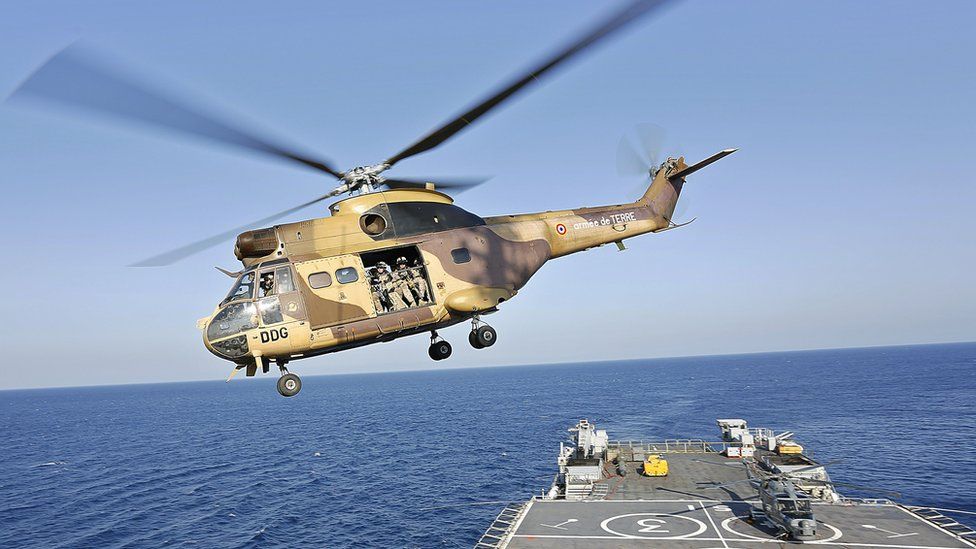EU plan to beef up military prompts battle of words over Nato
- Published

The UK defence secretary was adamant.
Britain remained firmly opposed to any move towards creating an EU army, Sir Michael Fallon said, as it would simply undermine Nato.
And yet it wasn't on the agenda when EU defence ministers met in Slovakia and barely anyone is talking about the idea. There are no plans for legions of Eurotroops decked out in helmets emblazoned with yellow stars on a blue background.
It's difficult, indeed pointless, to oppose something that doesn't exist and isn't being suggested. But that's the problem with the argument over the EU's future military capabilities; for now it's a battle of semantics, a war of words.
Instead the official agenda here in Bratislava spoke of "the EU Global Strategy and its synergies and sequencing with the Commission-led EDAP".
But for Sir Michael Fallon there's already much to dislike.
France and Germany presented proposals that would include joint development of military hardware such as helicopters and drones, expanding the EU's peace-keeping missions and, most contentiously of all, establishing a permanent joint European military HQ.
'Strengthening Nato'
"We will continue to oppose any kind of duplication like that, or any unnecessary bureaucracy that cuts across the primary mechanism for defending Europe, which is Nato," Mr Fallon told reporters.
He was by no means alone in opposing such "bureaucratic duplication", he said.
Germany insists that the idea has nothing to do with a European army.
"It is not aimed against Nato," said Defence Minister Ursula Von der Leyen. "On the contrary, we need a strong Europe and whatever strengthens Europe in defence also strengthens Nato."
And those words were underlined by Nato Secretary General Jens Stoltenberg, who told reporters at the meeting that there was "no contradiction between strong European defence and a strong Nato". The importance lay in avoiding duplication, he said.
When he stepped out of the meeting, the UK defence secretary said that 12 countries had spoken and half were against the EU military headquarters, including Sweden, the Netherlands, Poland, Latvia and Lithuania. The BBC couldn't immediately verify that.
EU foreign affairs chief Federica Mogherini said after the informal summit that "in our three hours discussion on this topic with all the ministers, I never heard once the word 'veto', I never heard once the word 'blocking', and I never heard once the word 'army'," she said.
Primarily Sir Michael said he remained sceptical about European willingness to stump up the cash for new defence projects when only a handful of European countries met their existing defence budget obligations to Nato.
"The real issue is whether they're prepared to step up to the 2% (of GDP on defence spending) as we already have," Mr Fallon told reporters.
"There are half a dozen of them in that room who don't spend 1%," he said, explaining why he was cool towards Europe's common defence ambitions.
"Europe is full of Eurosceptics now. We are all Eurosceptics."
- Published27 September 2016
- Published14 September 2016
- Published9 September 2016